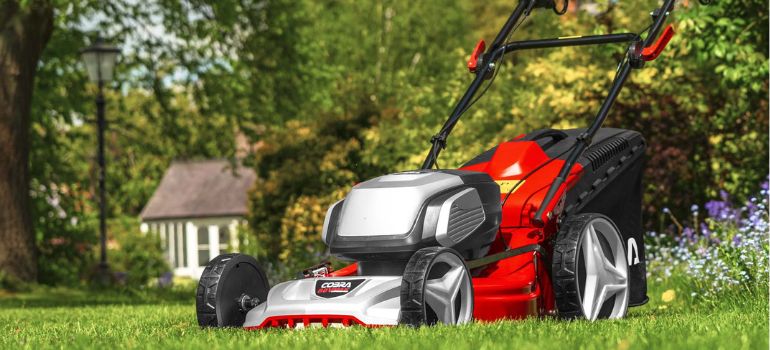Introduction
In the realm of lawn care, choosing the right mower can make a significant difference. The battle between 40V and 80V mowers has become a hot topic among gardening enthusiasts. In this article, we’ll delve into the intricacies of these two powerhouses, exploring their strengths, weaknesses, and the factors to consider when making a choice.
Understanding Voltage: The Basics
Before we jump into the comparison, let’s break down the basics. Voltage plays a crucial role in determining a mower’s power. In this section, we’ll explain the significance of 40 volts and 80 volts in the context of lawn mowers.
Exploring 40V Mowers
Power Efficiency
40V mowers are known for their efficiency in handling regular lawn maintenance tasks. We’ll discuss how this voltage range is suitable for smaller lawns and light-duty work, providing a balance between power and battery life.
Lightweight and Maneuverable
One of the key advantages of 40V mowers is their lightweight design. We’ll explore how this makes them easy to maneuver, making them an ideal choice for homeowners with smaller yards.
Unleashing the Power of 80V Mowers
Raw Power for Large Lawns
For those with expansive lawns and tougher grass, 80V mowers bring a higher level of power to the table. We’ll delve into how this voltage range can tackle demanding tasks with ease, ensuring a pristine lawn.

Extended Battery Life
Contrary to the assumption that higher voltage leads to shorter battery life, we’ll discuss how advancements in battery technology have allowed 80V mowers to maintain a surprisingly long runtime.
The Showdown: 40V vs. 80V
Now that we’ve dissected the individual strengths of each voltage range, it’s time for the ultimate showdown. In this section, we’ll directly compare 40V and 80V mowers, evaluating their performance, durability, and overall value for money.
Performance Metrics
Cutting Power and Precision
We’ll compare the cutting power and precision of 40V and 80V mowers, highlighting scenarios where one might outshine the other based on specific lawn care needs.
Durability and Build Quality
Materials and Construction
Investigating the build quality of both types of mowers, we’ll discuss how the choice of materials affects durability and the long-term performance of the equipment.
Value for Money
Initial Cost vs. Long-Term Investment
Breaking down the cost aspect, we’ll analyze whether the upfront investment in an 80V mower is justified by its long-term benefits, or if a 40V mower offers a more budget-friendly option.
Making the Decision: Factors to Consider
Choosing between a 40V and an 80V mower involves weighing various factors. In this section, we’ll guide readers through the decision-making process, considering aspects like lawn size, terrain, and personal preferences.
Lawn Size Matters
Matching Voltage to Lawn Area
We’ll provide a practical guide on how to determine the appropriate voltage based on the size of the lawn, ensuring optimal performance and efficiency.
Terrain Considerations
Handling Different Terrains
Discussing the impact of voltage on maneuverability and performance across various terrains, we’ll help readers assess which mower suits their specific landscape.
Personal Preferences
Noise Levels, Maintenance, and Additional Features
Exploring the softer aspects of mower selection, we’ll touch on noise levels, maintenance requirements, and additional features that might influence a user’s choice.
Conclusion
In the dynamic landscape of lawn care, the choice between a 40V and 80V mower ultimately boils down to individual needs. By understanding the nuances of each voltage range and considering factors like lawn size and terrain, users can make an informed decision that aligns with their unique requirements.
FAQs
Q1: Can I use an 80V mower on a small lawn?
Absolutely! While 80V mowers excel in larger areas, they can still be efficient on smaller lawns. Just be mindful of the extra power.
Q2: Are 40V mowers suitable for thick and tall grass?
Indeed, 40V mowers can handle moderately thick grass. For exceptionally tall or dense growth, consider the 80V option for optimal results.
Q3: How often should I charge the battery for a cordless mower?
Charging frequency depends on usage. On average, charging after every use is recommended to ensure your mower is always ready for action.
Q4: Can I upgrade the battery on my cordless mower?
It’s essential to check manufacturer specifications, but many models offer compatible higher-capacity batteries for an upgrade.
Q5: Are cordless mowers suitable for commercial use?
While cordless mowers have come a long way, they are still more commonly used for residential purposes. For heavy commercial use, a gas-powered mower may be more suitable.
